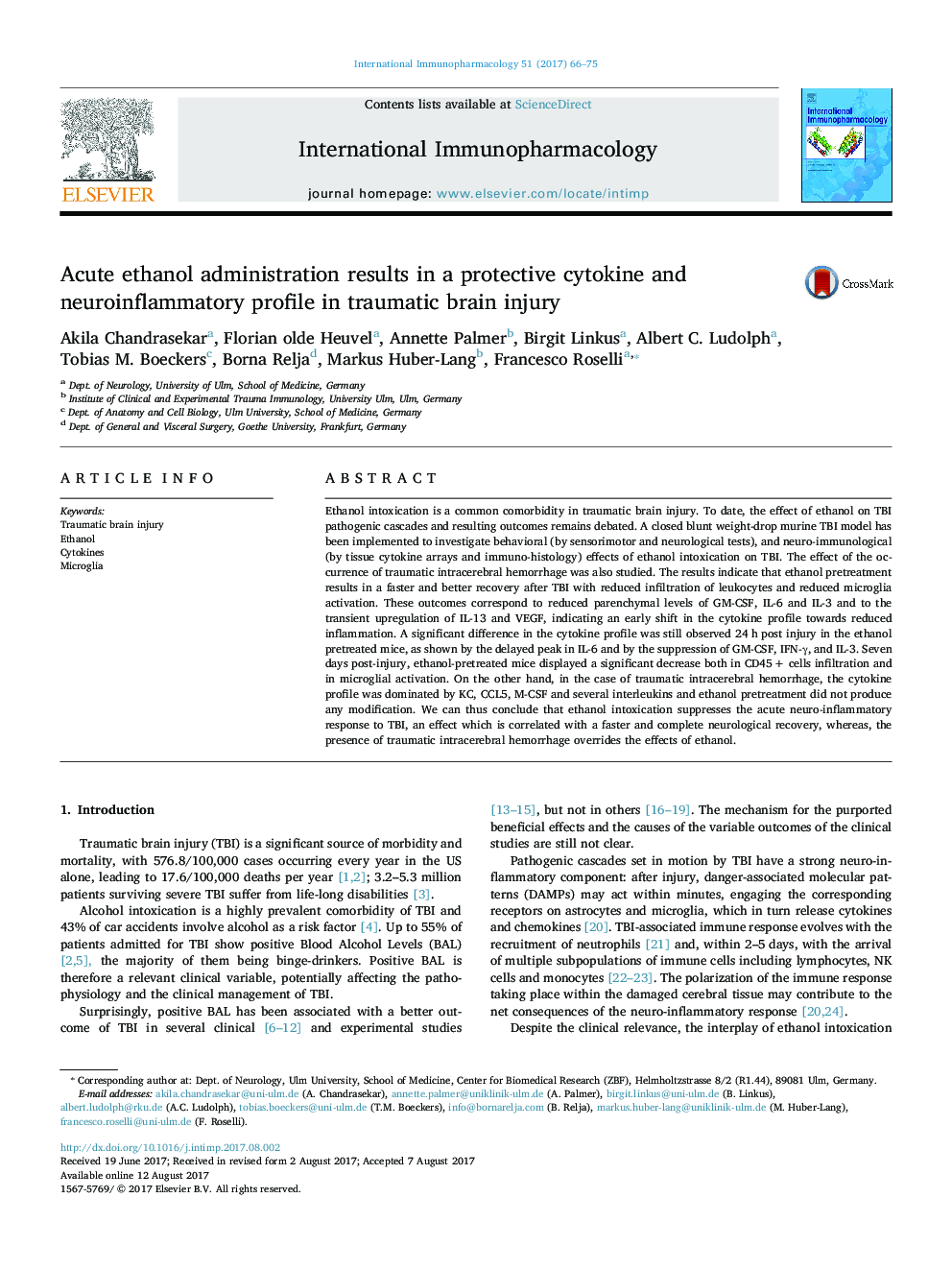| کد مقاله | کد نشریه | سال انتشار | مقاله انگلیسی | نسخه تمام متن |
|---|---|---|---|---|
| 5555217 | 1559739 | 2017 | 10 صفحه PDF | دانلود رایگان |
- Ethanol intoxication improves neurological recovery after traumatic brain injury.
- Ethanol suppresses pro-inflammatory cytokines induced by traumatic brain injury.
- Ethanol is ineffective in case of concomitant hematoma formation.
Ethanol intoxication is a common comorbidity in traumatic brain injury. To date, the effect of ethanol on TBI pathogenic cascades and resulting outcomes remains debated. A closed blunt weight-drop murine TBI model has been implemented to investigate behavioral (by sensorimotor and neurological tests), and neuro-immunological (by tissue cytokine arrays and immuno-histology) effects of ethanol intoxication on TBI. The effect of the occurrence of traumatic intracerebral hemorrhage was also studied. The results indicate that ethanol pretreatment results in a faster and better recovery after TBI with reduced infiltration of leukocytes and reduced microglia activation. These outcomes correspond to reduced parenchymal levels of GM-CSF, IL-6 and IL-3 and to the transient upregulation of IL-13 and VEGF, indicating an early shift in the cytokine profile towards reduced inflammation. A significant difference in the cytokine profile was still observed 24 h post injury in the ethanol pretreated mice, as shown by the delayed peak in IL-6 and by the suppression of GM-CSF, IFN-γ, and IL-3. Seven days post-injury, ethanol-pretreated mice displayed a significant decrease both in CD45 + cells infiltration and in microglial activation. On the other hand, in the case of traumatic intracerebral hemorrhage, the cytokine profile was dominated by KC, CCL5, M-CSF and several interleukins and ethanol pretreatment did not produce any modification. We can thus conclude that ethanol intoxication suppresses the acute neuro-inflammatory response to TBI, an effect which is correlated with a faster and complete neurological recovery, whereas, the presence of traumatic intracerebral hemorrhage overrides the effects of ethanol.
Journal: International Immunopharmacology - Volume 51, October 2017, Pages 66-75
